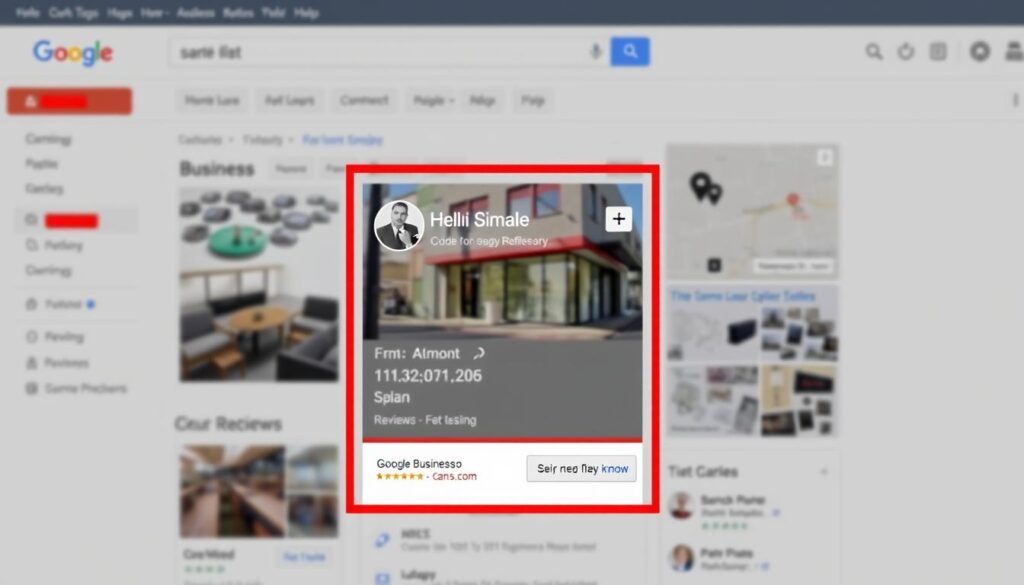an be a daunting task. That’s where a business directory comes in – a list of companies ordered by specific categories like industry or name. By listing businesses by topics such as location, name, or industry, these directories make it efficient to sort and find specific companies.
As we explore the concept of directories, we’ll discuss how they serve as valuable resources for both consumers seeking products services and businesses looking to increase their visibility. By understanding the purpose of directories, business owners and marketers can expand their online presence. For more information on how to leverage online directories for your online business, contact us at Hello@PotMonk.com today!
Key Takeaways
- Business directories are organized listings of companies categorized by industry, location, or name.
- They serve as valuable resources for consumers and businesses alike.
- Understanding the purpose of directories is crucial for business owners and marketers.
- Directories provide essential contact information and business details.
- They have evolved from traditional printed formats to modern digital platforms.
Understanding Business Directories
The concept of a business directory is simple yet powerful, serving as a comprehensive list of businesses organized for easy access. A business directory typically includes a business profile for each listed company, containing essential information such as name, address, and phone number (NAP). This information helps consumers find and contact businesses relevant to their needs.
Definition and Basic Concept
A business directory is an organized collection of business information, categorized for easy access and discovery. These directories list businesses along with their contact information, often including additional details such as business descriptions and operating hours. By organizing businesses by industry and location, directories facilitate targeted searches, making it easier for consumers to find relevant businesses.
Evolution from Print to Digital
The evolution of business directories from traditional print formats to digital platforms has significantly expanded their capabilities and reach. Originally, business directories were published as printed yellow pages, limiting their scope and accessibility. The transition to online directories has enabled the inclusion of more detailed listings, multimedia content, and interactive features, enhancing user experience and providing businesses with greater visibility.
As online business directories continue to grow in importance, they offer a valuable resource for both businesses and consumers, fostering connections and facilitating discovery in an increasingly digital marketplace.
Types of Business Directories
As we explore the landscape of business directories, we find a range of types serving distinct purposes. These directories cater to various business needs, from enhancing online visibility to providing industry-specific listings.
Online Business Directories
Online business directories have become indispensable for businesses aiming to boost their digital presence. Platforms like Yelp, Google My Business, and Yellow Pages are among the most popular, offering businesses the opportunity to reach a wider audience.
Printed Business Directories
Despite the digital shift, printed business directories continue to hold relevance in certain markets. The traditional Yellow Pages, for instance, remain a valuable resource for local businesses, particularly in areas with limited internet access.
Industry-Specific Directories
Industry-specific directories cater to niche markets, providing targeted listings for businesses in sectors like healthcare, legal services, and home improvement. Angi, for home services, is a prime example, connecting homeowners with trusted professionals.
Government and Official Directories
Government-maintained directories play a crucial role in ensuring business compliance with regulations and taxes. These authoritative sources provide verified business information, serving as essential tools for businesses and regulatory bodies alike.
By understanding the different types of business directories available, businesses can make informed decisions about where to list themselves to achieve their marketing goals.
How Business Directories Work
Business directories operate through a combination of data collection, verification, and search functionality. These directories have become crucial for businesses to establish an online presence. They provide users with a platform to find and connect with various businesses.
Information Collection and Verification
Business directories gather information through various methods, including direct submissions, data aggregation from public records, web scraping, and partnerships with data providers. Companies like Axiom collect business data, such as contacts and addresses, which is then used by other sites to create their own directory pages. For more information on the online directory business model, you can visit this resource.
Method |
Description |
Benefits |
| Direct Submissions | Businesses provide information directly to the directory. | High accuracy, up-to-date information. |
| Data Aggregation | Data is collected from public records and other sources. | Comprehensive data coverage. |
| Web Scraping | Information is extracted from websites. | Large-scale data collection. |
Search and Discovery Features
Directories implement various search and discovery features, including filtering options, geolocation services, and category-based browsing, to make it easier for users to find businesses.

The ranking algorithms used by business directories determine the order of search results based on factors like relevance, proximity, and review ratings.
By understanding how business directories work, businesses can optimize their listings to improve their visibility and reach a wider audience.
What Is a Business Directory Used For?
Business directories serve multiple purposes, catering to both consumers and businesses alike. They have become essential tools in the digital landscape, providing a platform where businesses can be found and consumers can discover new services and products.
For Consumers and General Users
For consumers, a business directory is a valuable resource for finding local businesses, comparing options, and making informed purchasing decisions. They can read reviews, check operating hours, and access contact details, making it easier to choose the right service or product. Business directories help users discover new businesses and verify their legitimacy, ensuring a safe and reliable transaction.
Consumers can use business directories to find a wide range of businesses across various industries, from healthcare to retail. This makes it easier for customers to find what they’re looking for and connect with local businesses that meet their needs.
For Business Owners and Marketers
For business owners and marketers, a business directory is a powerful marketing tool that can increase online visibility, improve local SEO, and establish credibility. By listing their business in a directory, companies can reach a wider audience and generate qualified leads. Business directories also serve as valuable resources for B2B connections, helping businesses find suppliers, partners, and service providers within specific industries or geographic regions.
By leveraging business directories, businesses can enhance their online presence and reach more customers. This is particularly beneficial for small businesses or those operating in competitive markets, as it provides them with an opportunity to stand out and attract new customers.
Benefits of Using Business Directories
The advantages of using business directories are multifaceted, ranging from improved SEO to increased credibility. By listing your business in reputable directories, you can significantly enhance your online presence and reach a wider audience.
Increased Online Visibility
One of the primary benefits of business directories is the increase in online visibility they provide. By being listed in multiple directories, businesses can appear in more search results, expanding their digital footprint beyond their own website and social media profiles. This increased visibility can lead to more website traffic and potential customers.
Local SEO Advantages
Business directories also offer significant local SEO advantages. Directory listings provide valuable backlinks to your website, which can improve your search engine rankings. Additionally, consistent NAP (Name, Address, Phone Number) information across directories sends positive signals to search engines, further enhancing your local search rankings.
Credibility and Trust Building
Being listed in established directories helps build trust with potential customers by providing third-party validation. Many directories also allow customers to leave reviews, which can further enhance credibility. Positive reviews and high ratings can significantly influence a consumer’s decision to choose one business over another.
Lead Generation Opportunities
Directories can generate qualified leads by connecting businesses with consumers who are actively searching for their specific products or services. By providing contact information and other details, businesses can make it easier for interested customers to get in touch. For expert guidance on maximizing the potential of business directories, contact Pot Monk by emailing us at Hello@PotMonk.com today!
A major benefit of business directories is that they allow sales and marketing teams to reach more target customers, increase brand awareness, and generate more revenue. Listing your business in a well-known, reputable directory can boost credibility and improve overall search engine optimization (SEO). When a prospect visits your website through a directory, it is considered a backlink, which can improve your company’s Google ranking.
Popular Business Directory Platforms
Businesses can significantly enhance their online presence by listing themselves in popular business directory platforms. These platforms not only increase a business’s visibility but also provide potential customers with easy access to business information.
General Business Directories
General business directories are platforms that list businesses across various industries. They are an excellent starting point for businesses looking to increase their online visibility. Some of the top general business directories include Google Business Profile, Bing Places, and Yelp. These directories have a vast user base and offer features such as reviews and ratings that can significantly impact a business’s reputation.

Niche and specialized directories cater to specific industries or sectors, providing businesses with a targeted audience. For instance, healthcare businesses can benefit from being listed on HealthGrades or Vitals, while hospitality businesses can leverage TripAdvisor. These directories allow businesses to reach potential customers who are actively searching for services within their industry.
Niche and Specialized Directories
Industry-specific business directories offer a platform for businesses to connect with their target audience. By listing their business in these directories, companies can increase their visibility among potential customers who are already interested in their products or services. Examples of niche directories include Angi for home services, CarGurus for automotive, and Avvo for legal services.
By understanding the unique features and user base of each directory platform, businesses can make informed decisions about where to list their business. Whether it’s a general directory or a niche-specific platform, being listed in the right business directories can significantly enhance a business’s online presence and attract new customers.
How to Get Your Business Listed in Directories
In today’s digital age, having your business listed in directories is no longer optional. Claiming or creating and monitoring your business directory listing enables you to take control of the information being presented to the world around your brand.
Claiming and Optimizing Your Listings
To effectively claim, create, and optimize your listings across various business directory platforms, follow these steps. First, identify the directories where your business should be listed, focusing on those relevant to your industry. Then, claim your existing listings or create new ones, ensuring you verify your ownership to gain control over how your business is presented online.
Optimizing your directory listings involves providing complete and accurate NAP (Name, Address, Phone Number) information, crafting compelling business descriptions, and uploading high-quality images. Proper category selection and updated operating hours also play a crucial role in expanding your presence on the platform and converting more users.
Managing Reviews and Reputation
Managing and responding to customer reviews, both positive and negative, is crucial for maintaining a strong online reputation and demonstrating excellent customer service. When you receive a review, respond promptly and professionally, addressing any concerns raised and thanking customers for their feedback.
To effectively manage reviews, monitor your listings across multiple platforms regularly. This ensures consistency and accuracy, helping you stay on top of your online reputation. For professional assistance in managing your business directory listings and reviews, consider reaching out to experts like Pot Monk by emailing us at Hello@PotMonk.com today!

Business Directories vs. Company Databases
Business directories and company databases serve different purposes, and recognizing their differences is key to leveraging them effectively. While both are used for listing and information purposes, they cater to different needs and audiences.
Key Differences in Purpose and Structure
The primary distinction between a business directory and a company database lies in their scope and application. A business directory typically lists a wide range of businesses and organizations, including small businesses, startups, freelancers, and service providers within a specific region or industry. These directories are often used by consumers and other businesses looking for products or services.
In contrast, a company database focuses on listing employees, departments, and other internal information within a single organization. It serves as an internal resource for employees to locate and contact their colleagues and access organizational information. The structure of a company database is more complex, often including detailed contact information, job titles, and sometimes even employee profiles.
When to Use Each Type of Resource
Understanding when to use a business directory versus a company database is crucial for maximizing their benefits. Business directories are ideal for marketing and customer acquisition strategies, as they provide a platform for businesses to increase their visibility among potential customers. On the other hand, company databases are invaluable for internal communication, sales prospecting, and B2B outreach efforts.
In many cases, businesses may need to utilize both types of resources. For instance, a company might use a business directory to attract new customers while maintaining an internal company database for sales team to prospect and manage leads. By leveraging both directories and databases effectively, businesses can enhance their overall marketing, sales, and operational strategies.
In conclusion, while business directories and company databases share some similarities, their differences in purpose, structure, and application are significant. By understanding these differences, businesses can make informed decisions about how to use these resources to achieve their goals.
Conclusion: Maximizing the Value of Business Directories
As we conclude our exploration of business directories, it’s clear that these platforms play a vital role in modern marketing strategies. Throughout this article, we’ve discussed the various types of business directories, their benefits, and how they can be leveraged to enhance a company’s online visibility and credibility.
To maximize the potential of business directories, businesses should develop a comprehensive directory marketing strategy. This involves listing your business in both general and niche directories to reach a broader audience. It’s also crucial to ensure that your business information is accurate, consistent, and compelling across all directory listings.
Looking ahead, we can expect business directories to become even more integrated with mobile technology, voice search optimization, and artificial intelligence-driven recommendations. By staying ahead of these trends, businesses can continue to reap the benefits of directory marketing.
We encourage you to review and optimize your directory presence today. By doing so, you can improve your online visibility, attract potential customers, and drive business growth. At Pot Monk, we’re here to help you navigate this process. Contact us at Hello@PotMonk.com to learn more about how we can support your directory marketing efforts.

Frequently Asked Questions














